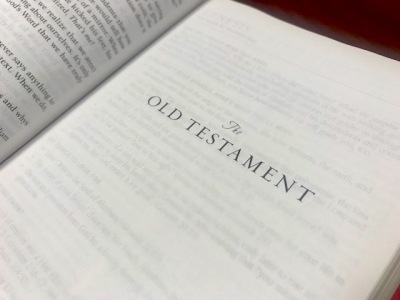7 views on messianic prophecies

How does one interpret passages in the Hebrew Bible (a.k.a., the Old Testament) in light of the New Testament? Even in the conservative evangelical world, this issue has become somewhat controversial. In his book The Messianic Hope: Is the Hebrew Bible Really Messianic?, Michael Rydelnik of Moody Bible College argues that much of this dispute has come from a medieval Jewish rabbi named Rashi whose commentaries “reflect his desire to counter Christianity” (Rydelnik, Messianic Hope, 116). Rashi held that a prophecy should only be viewed in light of the current history transpiring when the text was written and not look to a future, messianic, eschatological prophecy. Many in the Christian community were eventually influenced by Rashi’s interpretation methods. As time progressed, seven positions on how to handle messianic prophecies developed.
- Historical Fulfillment. This is the view held by critical scholars (Rydelnik, MH, 28). This view holds that an OT text is merely the “outgrowth of history” (Rydelnik, MH, 29) and has little to no relevance to a future Messiah. Ironically, Rashi held this view only for those aspects that relate to the first advent of Messiah, not for the eschatological rule of Messiah.
- Dual Fulfillment/Sensus Plenior. Held by numerous evangelical and Roman Catholic interpreters, advocates of dual fulfillment hold that prophetic passages hold two meanings. One of the meanings impacts the historical time of the prophet. The other meaning influences the coming Messiah. This interpretation contends that Old Testament passages could often hold a double meaning.
- Typical Fulfillment. This category could also be called typological fulfillment. Many evangelicals also hold to this position which contends that a prophecy may typologically address the Messiah although it finds its roots in the historical context of the time it was written. The historical fulfillment at the time of the prophet served as a symbol for what would happen to the future Messiah.
- Progressive Fulfillment. Conservatives who desire both a messianic hope and a historical context will argue for the progressive fulfillment view. Biblical prophecy is sown and developed in a progressive manner through historical figures until it finds its ultimate fulfillment in the Messiah. This system is also called epigenetic fulfillment.
- Relecture Fulfillment. The term relecture means “re-reading.” According to this view, the NT writers re-read the OT prophecies in a new light, adding new meaning to the texts, to relate them to the Messiah. Critical scholars hold this view although some evangelicals have espoused something comparable to relecture fulfillment.
- Midrash/Pesher Fulfillment. Advocates of this view contend that the NT writers used the midrash method of early Judaism to allegorize the OT prophecies to apply them to Jesus. The trouble is that the style of midrash referenced was used well after the first-century. Proponents of the view hold that the NT writers could successfully employ the midrash method especially as they were under the inspiration of the Holy Spirit. Mostly critical scholars hold this view although some evangelicals do, as well.
- Direct Fulfillment. The most traditional of the viewpoints is titled direct fulfillment. This view argues that the messianic prophecies written in the OT find a direct link in their fulfillment with the Messiah. The view contains two schools of thought within it. The first is the Dogmatic/Confessional Approach which holds that the NT is the final authority on messianic meaning. E. W. von Hengstenberg held this view. The second is the Compositional/Canonical Approach which holds that the books of the OT were written with a messianic intent. The NT writers merely interpreted the intent of the OT prophecies. Rydelnik seems to favor this view as does John Sailhammer and William Horbury.
It may be that some prophecies fit better in certain categories. Some prophecies may hold more of a direct fulfillment than others. But it is intriguing to me that most scholars before the time of Rashi interpreted messianic prophecies directly. This is an issue that need further exploration. At this time after having read Rydelnik’s book, I am inclined to accept the compositional approach within the direct fulfillment category as most appropriate within many prophetic contexts, yet I can see the value in sensus plenior and the typological approaches. My biggest concern is that we do not become so shortsighted that we neglect the power of God to speak through his prophets. If God can make all that exists from nothing but his voice, then most certainly God can provide a comprehensive prophecy about a future person—his Son, Jesus Christ.
Source
Rydelnik, Michael. The Messianic Hope: Is the Hebrew Bible Really Messianic? NAC Studies in Bible & Theology. Edited by E. Ray Clendenen. Nashville: B&H Academic, 2010.
© 2018. BellatorChristi.com.




























